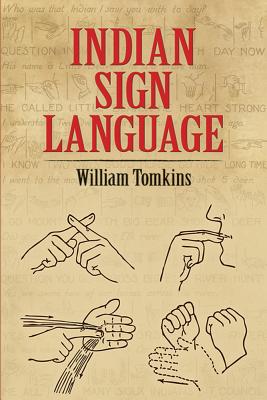
description
speaking different languages were nevertheless able to communicate facts and feelings of considerable complexity when they met. They used a language composed of gestures made almost entirely with the hands and fingers, probably the most highly developed gesture language to be found in any part of the world.
With this book, you will find it simple to use this language, which the author learned in the late nineteenth and early twentieth centuries, principally from Sioux Indians in Wyoming. Drawings and short descriptions make clear the proper positions and motions of the hands to convey the meaning of over 870 alphabetically arranged common words -- hungry, camp, evening, angry, fire, laugh, owl, cat, many times, brave, cold, heart, rain, spotted, together, river, etc. The words are then used in sample sentences. There are also brief sections on the pictography and ideography of the Sioux and Ojibway tribes, and on smoke signals.
This is a book for anyone who wants to learn or teach Indian sign language -- scouts, school teachers, camp counselors, scout leaders, parents, linguists, and students of Indian culture. To help counselors and teachers, the last chapters give instructions on how to conduct the Indian ceremony for opening a council fire, an Indian initiation ceremony, and suggestions for sign language tests and exercises.
With this book, you will find it simple to use this language, which the author learned in the late nineteenth and early twentieth centuries, principally from Sioux Indians in Wyoming. Drawings and short descriptions make clear the proper positions and motions of the hands to convey the meaning of over 870 alphabetically arranged common words -- hungry, camp, evening, angry, fire, laugh, owl, cat, many times, brave, cold, heart, rain, spotted, together, river, etc. The words are then used in sample sentences. There are also brief sections on the pictography and ideography of the Sioux and Ojibway tribes, and on smoke signals.
This is a book for anyone who wants to learn or teach Indian sign language -- scouts, school teachers, camp counselors, scout leaders, parents, linguists, and students of Indian culture. To help counselors and teachers, the last chapters give instructions on how to conduct the Indian ceremony for opening a council fire, an Indian initiation ceremony, and suggestions for sign language tests and exercises.
member goods
No member items were found under this heading.
Return Policy
All sales are final
Shipping
No special shipping considerations available.
Shipping fees determined at checkout.







